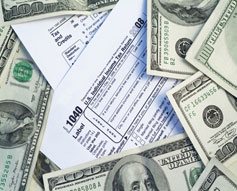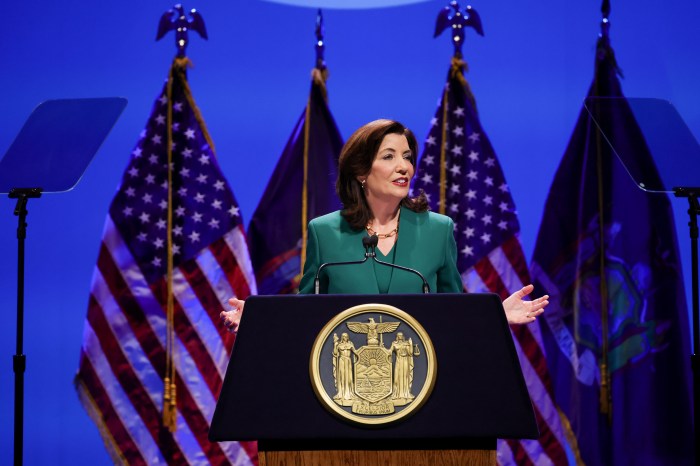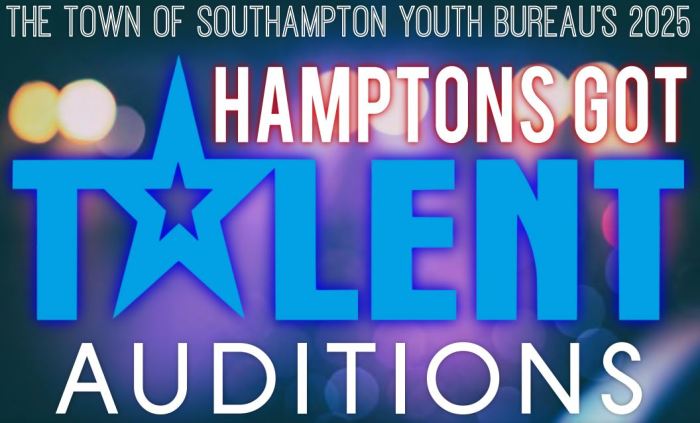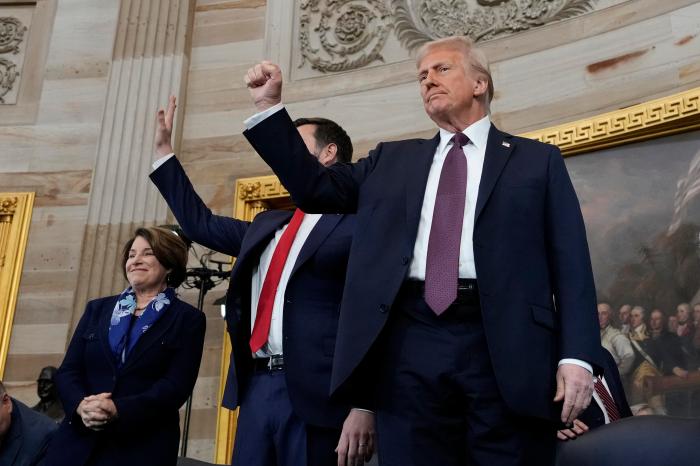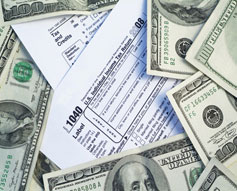 The recent admission by the Internal Revenue Service that it was zeroing in on tax-exempt groups with “Tea Party” or “Patriots” in their name has sparked outrage on all sides of the political spectrum. The IRS has drawn the ire of President Obama, Rep. Peter King, the top Long Island Republican, and Rep. Steve Israel, the Huntington Democrat who heads the Democratic Congressional Campaign Committee.
The recent admission by the Internal Revenue Service that it was zeroing in on tax-exempt groups with “Tea Party” or “Patriots” in their name has sparked outrage on all sides of the political spectrum. The IRS has drawn the ire of President Obama, Rep. Peter King, the top Long Island Republican, and Rep. Steve Israel, the Huntington Democrat who heads the Democratic Congressional Campaign Committee.
Any organization granted a tax exemption for “social welfare” activity under Section 501(c)(4) of the tax code can collect unlimited and undisclosed contributions but if the group is spending most of its money on political activity, then it loses its status and has to report how much it got and from whom, according to tax experts.
Last Friday, the FBI revealed that the IRS was focusing on conservative groups for further review of their tax-exempt status. News reports first said the targeting was done by IRS agents in the Cincinnati office trying to cope with a flood of applications for 501(c)(4) exemptions. It turned out that on June 29, 2011, Lois Lerner, head of the IRS division overseeing tax-exempt groups, had learned of the targeting and insisted that the search be broadened to all political and lobbying groups, but, according to the New York Times, the IRS branch employees kept it narrow.
The revelation provoked Obama to say at a press conference last Friday, “If you’ve got the IRS operating in anything less than a neutral and nonpartisan way, then that is outrageous. It is contrary to our traditions.” He said that “people have to be held accountable, and it’s got to be fixed.”
Attorney General Eric Holder said Tuesday that the FBI is “coordinating with the Justice Department to see if any laws were broken in connection with those matters related to the IRS.”
On Monday, two Senate committees, both run by Democrats, announced they’d hold investigations while House committees run by Republicans have vowed to do the same.
“The IRS’s actions are disgraceful, and [it] attacks the very heart of our democracy,” Rep. Peter King (R-Seaford) said in a statement. “It warrants a full congressional and criminal investigation.”
Rep. Steve Israel (D-Huntington) echoed his outrage. “I’m deeply disturbed by reports that the IRS targeted certain groups,” he said in a statement. “I’m eager to review the Inspector General’s report later this week. If some at the IRS took actions that were politically motivated, they must be held accountable, along with those at the highest levels of the agency. We must make sure that the IRS maintains its integrity as an impartial agency.”
In the 2012 election, Rep. Tim Bishop (D-Southampton) was in the crosshairs of millions of dollars spent in negative advertising by Karl Rove’s Crossroads GPS, a 501(c)(4) tax-exempt group. The advertising never mentioned Bishop’s Republican opponent, Randy Altschuler, but painted the five-term LI congressman as a scoundrel embodying “everything that’s wrong with Washington.”
Rather than comment on what it felt like to be outspent by a 501(c)(4), Bishop expressed his concern about the IRS’ apparently politically motivated audits.
“I am deeply troubled by reports that some IRS employees applied undue scrutiny to certain groups seeking tax-exempt status,” said Bishop in a statement. “The enforcement authority of the IRS was designed to operate independently of this kind of political pressure. I expect the report to be issued this week by Treasury Department’s Inspector General will be the basis for immediate action and strong, comprehensive measures to ensure fairness and impartiality at the IRS.”
John Gomez, who ran against Israel in 2010 on the Republican and Conservative lines, had the full support of Long Island’s Tea Party, he said. But he had an uphill battle trying to level the playing field financially.
“Steve Israel was sitting on $4 million—I had $50,000,” Gomez recalled. By the election, he said he’d raised about half a million dollars and had to respond to letters from the Federal Election Commission charging him with campaign fund-raising violations that he later overturned in court. He likens what he went through with the FEC to what Tea Party groups faced with the IRS audits.
“Strategically, it’s a way to slow these organizations down,” Gomez says. “You can’t spend time organizing and disseminating information because this is really what your purpose is: to make people aware that the government is out of control.”
Steve Flanagan, director of the Conservative Society for Action, one of the first Tea Party groups founded on LI more than four years ago, shared Gomez’s concern. “If any of these allegations are true, we’re talking about a serious abuse of power here,” he said.
Before the news broke about the IRS audits, the Tea Party Patriots Citizens Fund, based in Washington, DC, sent out an urgent fund-raising request to its supporters past and present. One recipient was an 89-year-old woman who provided this reporter with her mailing. Among its calls to “provide critical financial and tactical support to principled conservative candidates at every level,” it said: “We can’t stand by and allow Obama, the Democrats and so-called ‘moderate’ Republicans to transform the United States into a weak, dependent, second-rate nation.”
From the wording above, it’s hard to say that this group is engaged in purely “social welfare.” But that’s what the tax-exempt battle apparently is about.
From a historical perspective, the White House has used the IRS to political ends for decades, starting with President Franklin D. Roosevelt, who employed it against Sen. Huey Long (D-La.) and Rep. Hamilton Fish, a New York congressman. During the Eisenhower administration, the IRS gave the FBI the tax returns of key members of the American Communist Party.
President Richard Nixon had the IRS audit muck-raking reporters who were critical of him, such as Newsday’s Bob Greene. And President Ronald Reagan used the IRS to challenge the tax-exempt status of the non-profit Mother Jones magazine, forcing one of the leading left-wing publications in the country to spend hundreds of thousands of dollars in legal fees to defend itself. It won.



